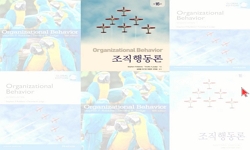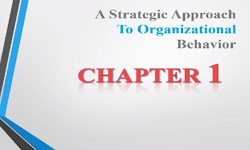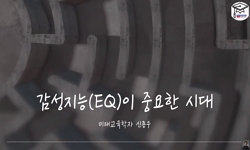콜센터는 기업의 대표적인 비대면 서비스 조직으로 성장하였으며 이곳에서 상담사는 고객서비스를 책임지고 있다 오늘날 상담사는 고객이 기업의 서비스품질을 평가할 때 중요한 부분으로...
http://chineseinput.net/에서 pinyin(병음)방식으로 중국어를 변환할 수 있습니다.
변환된 중국어를 복사하여 사용하시면 됩니다.
- 中文 을 입력하시려면 zhongwen을 입력하시고 space를누르시면됩니다.
- 北京 을 입력하시려면 beijing을 입력하시고 space를 누르시면 됩니다.

콜센터에서 상담사의 감성지능, 조직몰입 친사회적 조직행동 간의 구조적 관계 = A Study on the Relationships among Emotional Intelligence, Organizational Commitment and Prosocial Organizational Behaviors of Customer Service Representatives in Call Centers
한글로보기https://www.riss.kr/link?id=A100745476
- 저자
- 발행기관
- 학술지명
- 권호사항
-
발행연도
2015
-
작성언어
-
-
주제어
콜센터 ; 감성지능 ; 조직몰입 ; 친사회적 ; 조직행동 ; 서비스품질 ; 이직의도 ; Call center ; Emotional Intelligence ; Organizational Commitment ; Prosocial ; Organizational Behavior ; Service Quality ; Turnover Intention
-
KDC
320
-
등재정보
KCI등재
-
자료형태
학술저널
- 발행기관 URL
-
수록면
155-196(42쪽)
-
KCI 피인용횟수
6
- DOI식별코드
- 제공처
-
0
상세조회 -
0
다운로드
부가정보
국문 초록 (Abstract)
콜센터는 기업의 대표적인 비대면 서비스 조직으로 성장하였으며 이곳에서 상담사는 고객서비스를 책임지고 있다 오늘날 상담사는 고객이 기업의 서비스품질을 평가할 때 중요한 부분으로 자리매김하였다. 하지만 상담사의 콜센터에 대한 감정적 애착 및 소속감은 매우 낮으며 이는 높은 이직과 서비스품질의 저하로 이어지고 있다 이러한 상황에서 본 연구는 조직몰입에 관한 연구를 도입하여 상담사의 조직몰입에 영향을 미치는 핵심 변수를 찾고 더 나아가 조직몰입이 상담사의 행동과 성과에 미치는 효과를 검증하고자 한다 구체적으로 본 연구는 상담사가 수많은 고객들과 상호작용하는 콜센터 업무에 보다 잘 적응하고 성공적으로 적응하기 위해서 높은 감성지능이 필요함을 제시하고 네 가지 차원 즉 감성관리능력 감성이해능력 감성활용능력 감성공유능력 을 가지고 감성지능을 측정하고자 한다 이를 통해 감성지능의 각 차원이 다른 유형의 조직몰입 즉 감정적몰입과 계산적몰입에 미치는 개별적인 효과를 검증한다 이와 더불어 두 가지 유형의 조직몰입 이 콜센터에서 상담사의 자유재량적인 친사회적 조직행동 즉 역할내 고객서비스행동 협력 이직의도 서비스품질에 미치는 효과들을 분석한다.
콜센터에서 근무하는 상담사들로부터 수집된 부의 데이터를 분석한 결과는 다음과 같다 첫 288째 감성지능의 차원 중에서 감성관리능력과 감성공유능력은 감정적몰입을 증가시킬뿐만 아니라 계산적몰입을 감소시키는 것으로 나타났다 반면 감성이해능력과 감성활용능력은 감정적몰입과 관련성이 없으며 오히려 계산적몰입을 증가시키는 것으로 나타났다 둘째 감정적몰입은 역할내 고객 서비스행동과 협력을 증가시키고 이직의도를 크게 감소시키며 서비스품질을 증가시키는 반면 계산적몰입은 이직의도만을 상당히 증가시키는 것으로 밝혀졌다 마지막으로 상담사의 역할내 고객 서비스 행동과 협력은 이직의도와는 관련성이 없으나 서비스품질의 증가와는 밀접한 관련성을 지닌 것으로 나타났다.
다국어 초록 (Multilingual Abstract)
A call center has been grown up as a firm’s typical service encounter where customer service representatives (CSRs) are responsible for providing service to customers over the phone. Most firms apparently recognize the importance of CSRs in creating...
A call center has been grown up as a firm’s typical service encounter where customer service representatives (CSRs) are responsible for providing service to customers over the phone. Most firms apparently recognize the importance of CSRs in creating superior service quality while the recognition and rewards of their demanding work are insufficient. The most challenging issue that a call center faces is to improve CSRs’ emotional attachment and belonging to the organization, which is closely related to the increase of turnover intention and the deterioration of service quality.
Under the circumstances, this study focuses on CSRs’ job commitment which has been known as a key factor of capturing the levels of emotional attachment and belonging to the organization. More specifically, we examine a key determinant of CSRs’ job commitment (i.e., emotional intelligence (EI)) and verify the outcomes of CSRs’ job commitment (i.e., prosocial organizational behavior, turnover intention, and service quality). In this study, we conceptualize EI as a multi-dimensional variable including mood regulation, appraisal of emotion, utilization of emotion, and experience share emotion. Besides, in this study, the concept of prosocial organizational behavior includes role-in customer service behavior and helping behavior, and that of job commitment includes affective commitment and calculative commitment.
Using a total of 288 data collected on CSRs working for call centers, we tested the proposed research model and hypotheses. The key findings are as follows. First, concerning the relationship between EI and job commitment, mood regulation and experience/share emotion not only increase affective commitment, but also decrease calculative commitment. Contrary to our expectations, appraisal of emotion and utilization of emotion increase calculative commitment. Second, affective commitment promotes role-in customer service behavior and helping behavior, reduces turnover intention, and enhances service quality. On the contrary, calculative commitment only increases turnover intention. Finally, role-in customer service behavior and helping behavior considerably increase service quality, but they have nothing to do with turnover intention. The findings imply that CSRs' voluntary, proactive service efforts are a prerequisite for creating superior service quality.
목차 (Table of Contents)
- I 서론
- II 문헌연구
- III 연구모형 및 연구가설
- IV 실증분석
- V 결론
- I 서론
- II 문헌연구
- III 연구모형 및 연구가설
- IV 실증분석
- V 결론
참고문헌 (Reference)
1 이정란, "항공사 종사원의 심리적 임파워먼트가 직무만족, 조직몰입과 친사회적 행동에 미치는 영향" 한국호텔관광학회 8 (8): 147-161, 2006
2 조경희, "항공사 객실승무원의 성격유형과 감성지능, 직무만족, 조직몰입의 관계에 관한 연구" 한국관광산업학회 38 (38): 145-165, 2013
3 김상희, "판매원의 감정지능은 고객을 즐겁게 만들 수 있는가?: 내부마케팅과 외부마케팅의 통합적 접근" 한국경영학회 39 (39): 1585-1621, 2010
4 김상희, "판매원의 감정지능과 탈진감 및 고객 지향적 판매행동의 관계에 관한 연구" 한국경영학회 35 (35): 183-225, 2006
5 최수정, "콜센터에서 상담사의 조직동일시 형성과 결과에 관한 연구: 사회교환이론을 중심으로" 대한경영학회 27 (27): 1091-1113, 2014
6 신철우, "조직행동론" 문영사 1998
7 윤만희, "서비스 접점 종업원 지원이 고객의 서비스 품질 평가에 미치는 영향" 29 (29): 65-83, 2000
8 정호균, "레스토랑 종사자의 감성지능이 고객지향성에 미치는 영향: 집단응집성과 조직몰입의 매개효과" (사)한국관광레저학회 22 (22): 205-224, 2010
9 김판영, "국외여행인솔자의 감성지능이 친사회적 행동, 서비스 제공수준에 미치는 영향" 관광경영학회 18 (18): 21-39, 2014
10 이용기, "고객접점 종업원의 친사회적 행동에 대한 고객지각이 종업원 서비스품질 평가, 고객만족과 고객의 자발적 행동에 미치는 영향" 16 (16): 105-125, 2001
1 이정란, "항공사 종사원의 심리적 임파워먼트가 직무만족, 조직몰입과 친사회적 행동에 미치는 영향" 한국호텔관광학회 8 (8): 147-161, 2006
2 조경희, "항공사 객실승무원의 성격유형과 감성지능, 직무만족, 조직몰입의 관계에 관한 연구" 한국관광산업학회 38 (38): 145-165, 2013
3 김상희, "판매원의 감정지능은 고객을 즐겁게 만들 수 있는가?: 내부마케팅과 외부마케팅의 통합적 접근" 한국경영학회 39 (39): 1585-1621, 2010
4 김상희, "판매원의 감정지능과 탈진감 및 고객 지향적 판매행동의 관계에 관한 연구" 한국경영학회 35 (35): 183-225, 2006
5 최수정, "콜센터에서 상담사의 조직동일시 형성과 결과에 관한 연구: 사회교환이론을 중심으로" 대한경영학회 27 (27): 1091-1113, 2014
6 신철우, "조직행동론" 문영사 1998
7 윤만희, "서비스 접점 종업원 지원이 고객의 서비스 품질 평가에 미치는 영향" 29 (29): 65-83, 2000
8 정호균, "레스토랑 종사자의 감성지능이 고객지향성에 미치는 영향: 집단응집성과 조직몰입의 매개효과" (사)한국관광레저학회 22 (22): 205-224, 2010
9 김판영, "국외여행인솔자의 감성지능이 친사회적 행동, 서비스 제공수준에 미치는 영향" 관광경영학회 18 (18): 21-39, 2014
10 이용기, "고객접점 종업원의 친사회적 행동에 대한 고객지각이 종업원 서비스품질 평가, 고객만족과 고객의 자발적 행동에 미치는 영향" 16 (16): 105-125, 2001
11 곽상종, "고객센터에서 상담사의 직무탈진감이 고객지향성, 직무만족 및 이직의도에 미치는 영향" 한국경영학회 39 (39): 541-576, 2010
12 최수정, "고객센터에서 상담사의 셀프리더십이 상담품질, 고객만족, 신규매출에 미치는 영향" 한국산업경제학회 22 (22): 1807-1832, 2009
13 정기주, "고객센터에서 상담사의 감성지능이 고객지향성과 상담품질에 미치는 영향" 대한경영학회 23 (23): 1759-1781, 2010
14 박상언, "감정부조화와 감성지능이 서비스직 사원의 비과업행동에 미치는 영향" 한국경영학회 39 (39): 963-994, 2010
15 이선희, "가족친화적 경영이 조직몰입과 이직의도에 미치는 영향에 대한 직장-가정 갈등의 매개효과 가설 검증" 한국산업및조직심리학회 21 (21): 383-410, 2008
16 전재균, "‘체인레스토랑 종업원의 조직시민행동과 이직의도와의 관계 및 그 조절변수로서 직무성과에 관한 연구" 16 (16): 157-170, 2000
17 Palmer, B., "Workplace SUEIT: Swinburne University Emotional Intelligence Test, Descriptive Report" Organizational Psychology Research Unity, Swinburne University 2001
18 Schneider, B., "Winning the Service Game" Harvard Business School Press 1995
19 Sergeant, A., "When Do Customer Contact Employees Satisfy Customers?" 3 (3): 18-34, 2000
20 Mayer, J. D., "What is the Emotional Intelligence" Basic Books 1997
21 Blau, G. J., "Using Job Involvement and Organizational Commitment Interactively to Predict Turnover" 15 (15): 15-127, 1989
22 George, J. M., "Understanding Prosocial Behavior Sales Performance and Turnover : A Group-Level Analysis in a Service Context" 75 (75): 698-709, 1990
23 Katz, D., "The Social Psychology of Organizations" Wiley 1966
24 Bitner, M. J., "The Service Encounter : Diagnosing Favorable and Unfavorable Incidents" 54 (54): 71-84, 1990
25 Abraham, R., "The Role of Job Control in Emotional Dissonance and Emotional Intelligence Outcome Relationships" 134 : 169-184, 2000
26 Babakus, E., "The Role of Customer Orientation as a Moderator of the Job Demand–Burnout–Performance Relationship: A Surface-Level Trait Perspective" 85 (85): 480-492, 2009
27 Malhotra, N., "The Relative Influence of Organizational Commitment and Job Satisfaction on Service Quality of Customer-contact Employees in Banking Call Centres" 18 (18): 162-174, 2004
28 Carmeli, A., "The Relationship between Emotional Intelligence and Work Attitudes, Behaviour and Outcomes : An Examination among Senior Managers" 18 (18): 788-813, 2003
29 Anton, J., "The Past, Present and Future of Customer Access Centers" 11 (11): 120-130, 2000
30 Guleryuz, K., "The Mediating Effect of Job Satisfaction between Emotional Intelligence and Organizational Commitment of Nurses : A Questionnaire Survey" 45 (45): 1625-1635, 2008
31 Allen, N. J., "The Measurement and Antecedents of Affective, Continuance, and Normative Commitment to the Organization" 53 : 337-348, 1990
32 Hochschild, A., "The Managed Heart : Commercialization of Human Feeling" University of California Press 1983
33 Boshoff, C., "The Influence of Selected Antecedents on Frontline Staff’Perceptions of Service Recovery Performance" 11 (11): 63-90, 2000
34 Wong, C. S., "The Effects of Leader and Follower Emotional Intelligence on Performance and Attitude: An Exploratory Study?" 13 (13): 243-274, 2002
35 Caruana, A., "The Effect of Internal Marketing on Organizational Commitment among Retail Bank Managers" 16 (16): 108-116, 1998
36 Goldenberg, I., "The Assessment of Emotional Intelligence : A Comparison of Performance-Based and Self-Report Methodologies" 86 (86): 33-45, 2006
37 Anderson, J. C., "Structural Equation Modeling in Practice : A Review and Recommended Two-Step Approach" 103 : 396-402, 1988
38 Pugh, S. D., "Service with a Smile : Emotional Contagion in the Service Encounter" 44 (44): 1018-1027, 2001
39 Paulin, M., "Service Climate and Organizational Commitment : The Importance of Customer Linkages" 59 : 906-915, 2006
40 de Ruyter, K., "Role Stress in Call Centers : Its Effects on Employee Performance and Satisfaction" 15 (15): 23-49, 2001
41 Parasuraman, A., "Refinement and Reassessment of the SERVQUAL Scale" 67 (67): 420-450, 1991
42 Heskett, J. L., "Putting the Service Profit Chain to Work" 164-174, 1994
43 Brief, A. P., "Prosocial Organizational Behaviors" 11 : 710-725, 1986
44 Meyer, J., "Organizational Commitment and Job Performance : It’ the Nature of the Commitment That Counts" 74 (74): 152-156, 1989
45 Organ, D. W., "Organizational Citizenship Behavior: The Good Soldier Syndrom" Lexington Books 1988
46 Feinberg, R. A., "Operational Determinants of Caller Satisfaction in the Banking/Financial Services Call Center" 20 (20): 174-180, 2002
47 Hair, J., "Multivariate Data Analysis –A Global Perspective" Pearson 2010
48 Gardner, H., "Multiple Intelligence: The Theory in Practice" Basic Books 1983
49 Zeller, R. A., "Measurement in the Social Sciences : The Link Between Theory and Data" Cambridge University Press 1980
50 Fu, F. Q., "Managing the Drivers of Organizational Commitment and Salesperson Effort : An Application of Meyer and Allen's Three Component Model" 17 (17): 335-350, 2009
51 Manogran, P., "Leader-Member Exchange as a Key Mediating Variable between Employee’s Perceptions of Fairness and Organizational Citizenship Behavior" Academy of Management 249-253, 1994
52 Koch, J. T., "Job Attachment, Satisfaction and Turnover among Public Sector Employees" 12 : 119-128, 1978
53 Suliman, A., "Is Continuance Commitment Beneficial to Organizations? Commitment-Performance Relationship : A New Look" 15 (15): 407-426, 2000
54 Throndike, E. L., "Intelligence and Its Use" 140 : 227-235, 1920
55 Morris, J. H., "Generalizability of an Organizational Commitment Model" 24 : 512-526, 1981
56 Saklofske, D. H., "Factor Structure and Validity of a Trait Emotional Intelligence Measure" 34 : 707-721, 2003
57 Fornell, C., "Evaluating Structural Equation Models with Unobservable Variables and Measurement Error" 19 (19): 440-452, 1981
58 Menon, K., "Ensuring Greater Satisfaction by Engineering Sales Person Response to Customer Emotions" 76 (76): 285-307, 2000
59 Mowday, R. T., "Employee-Organization Linkages:The Psychology of Commitment, Absenteeism, & Turnover" Academic Press 1982
60 Schneider, B., "Employee and Customer Perceptions of Service in Banks : Replication and Extension" 70 (70): 423-433, 1985
61 Goleman, D., "Emotional intelligence: Why It Can Matter More Than IQ" Bantam 1995
62 Bar-On, R., "Emotional intelligence in every day life: A scientific inquiry" Psychology Press 82-97, 2001
63 Mayer, J. D., "Emotional intelligence : Theory, Findings, and Implications" 15 (15): 197-215, 2004
64 Cartwright, S., "Emotional Intelligence, Its Measurement and Implications for the Workplace" 10 (10): 149-171, 2008
65 Nikolaou, I., "Emotional Intelligence in the Workplace : Exploring Its Effects on Occupational stress and Organizational Commitment" 10 (10): 327-342, 2002
66 Kidwell, B., "Emotional Intelligence in Marketing Exchanges" 75 (75): 78-95, 2011
67 Rozell, E. J., "Emotional Intelligence and Dispositional Affectivity as Predictors of Performance in Salespeople" 14 (14): 113-124, 2006
68 Salovey, P., "Emotional Intelligence" 9 : 185-211, 1990
69 Angle, H. L., "Dual Commitment and Labor-Management Relationship Climates" 29 (29): 31-50, 1986
70 Mukherjee, A., "Does Role Clarity Explain Employee-perceived Service Quality" 17 (17): 444-473, 2006
71 Schutte, N. S., "Development and Validation of a Measure of Emotional Intelligence" 25 : 167-177, 1998
72 Zeithaml, V. A., "Delivering Quality Service: Balancing Customer Perceptions and Expectations" Free Press 1990
73 Rozell, E. J., "Customer-Oriented Selling : Exploring the Roles of Emotional Intelligence and Organizational Commitment" 21 (21): 405-424, 2004
74 Burgers, A., "Customer Expectation Dimension of Voice-to-Voice Service Encounters : A Scale-Development Study" 11 (11): 142-161, 2000
75 Bettencourt, L. A., "Contact Employees : Relationships Among Workplace Fairness, Job Satisfaction and Prosocial Service Behaviors" 73 (73): 39-61, 1997
76 Meyer, J. P., "Commitment to Organizations and Occupations : Extension and Test of a Three-Component Conceptualization" 78 (78): 538-551, 1993
77 Malhotra, N., "Analysing the Commitment-Service Quality Relationship : A Comparative Study of Retail Banking Call Centres and Branches" 19 : 941-971, 2003
78 Netemeyer, R. G., "An Investigation into the Antecedents of Organizational Citizenship Behaviours in a Personal Selling Context" 61 (61): 85-98, 1997
79 Wagner, S., "Altruistic Organizational Citizenship Behavior : Context, Disposition and Age" 140 : 379-391, 2000
80 Meyer, J. P., "Affective, Continuance, and Normative Commitment to the Organization : A Meta-Analysis of Antecedents, Correlates, and Consequences" 61 (61): 20-52, 2002
81 Meyer, J. P., "A Three-Component Conceptualization of Organizational Commitment" 1 : 61-89, 1991
82 Higgs, M., "A Study of the Relationship Between Emotional Intelligence and Performance in UK Call Centres" 19 (19): 442-454, 2004
83 Organ, D. W., "A Meta-Analytic Review of Attitudinal and Dispositional Predictors of Organizational Citizenship Behavior" 48 : 775-802, 1995
84 Jaramillo, F., "A Meta-Analysis of the Relationship between Organization Commitment and Salesperson Job Performance : 25 Years of Research" 58 (58): 128-705, 2005
동일학술지(권/호) 다른 논문
-
급진적인 국제화 수준에 있어 기업가지향성, 기술지향성, 시장지향성 간 역할에 관한 실증적 고찰-국제신생벤처기업을 중심으로-
- 한국산업경영학회
- 윤정현
- 2015
- KCI등재
-
학습자의 인지양식과 학습태도 그리고 학습성취도와의 관계에 관한 연구
- 한국산업경영학회
- 이원기
- 2015
- KCI등재
-
절차적 대책과 기술적 대책이 금융기업의 감소된 IT 보안 위험에 미치는 영향과 기업 경쟁력 강화 간의 관계-변혁적 리더십의 조절효과-
- 한국산업경영학회
- 김근아
- 2015
- KCI등재
-
서비스 고객의 만족과 고객충성도 관계에 대한 연구-전환비용과 대안매력도의 매개역할을 중심으로-
- 한국산업경영학회
- 윤경산
- 2015
- KCI등재
분석정보
인용정보 인용지수 설명보기
학술지 이력
| 연월일 | 이력구분 | 이력상세 | 등재구분 |
|---|---|---|---|
| 2026 | 평가예정 | 재인증평가 신청대상 (재인증) | |
| 2020-01-01 | 평가 | 등재학술지 유지 (재인증) |  |
| 2017-01-01 | 평가 | 등재학술지 유지 (계속평가) |  |
| 2013-01-01 | 평가 | 등재학술지 유지 (등재유지) |  |
| 2010-01-01 | 평가 | 등재학술지 유지 (등재유지) |  |
| 2008-01-01 | 평가 | 등재학술지 유지 (등재유지) |  |
| 2006-01-01 | 평가 | 등재학술지 유지 (등재유지) |  |
| 2003-01-01 | 평가 | 등재학술지 선정 (등재후보2차) |  |
| 2002-01-01 | 평가 | 등재후보 1차 PASS (등재후보1차) |  |
| 2000-07-01 | 평가 | 등재후보학술지 선정 (신규평가) |  |
학술지 인용정보
| 기준연도 | WOS-KCI 통합IF(2년) | KCIF(2년) | KCIF(3년) |
|---|---|---|---|
| 2016 | 0.6 | 0.6 | 0.71 |
| KCIF(4년) | KCIF(5년) | 중심성지수(3년) | 즉시성지수 |
| 0.75 | 0.75 | 1 | 0.2 |





 KCI
KCI 스콜라
스콜라






